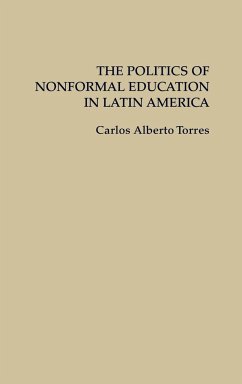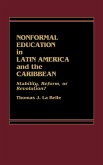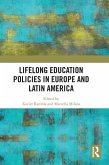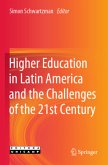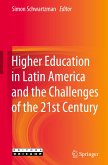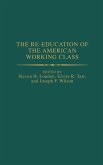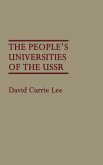Torres here brings a unique theoretical perspective to the study of the politics of nonformal education in Latin America. Using the literacy programs in several Latin American countries--including Mexico, Cuba, Nicaragua, and Grenada--as the prime examples of adult educational reform, Torres examines such issues as: Why are given educational policies created? How are they constructed, planned, and implemented? Who are the most relevant actors in their formulation and operationalization? What are the implications of such policies for both clients and the broader society? What are the fundamental, systematic, and organizational processes involved? Throughout, Torres uses an approach based on a political sociology and informed by political economy analysis. Challenging the established assumptions of mainstream adult and nonformal education, he argues persuasively that, rather than providing new training for the labor force or attempting to improve the living conditions of the poor, the nonformal education policies in Latin America have played an integral role in governments' attempts to legitimize the capitalist state. Torres begins by addressing some of the basic problems of illiteracy and adult education in Latin America. He then offers a brief overview of the relations between the state and education, which sets the stage for the theoretical discussion in the following chapters. Subsequent chapters analyze the political economy of adult education in Latin America and explore the political implications of adult education and literacy training. An in-depth study of education reform in socialist-oriented countries contrasts the pre- and post-revolutionary situation in adult education in Cuba, Nicaragua, and Grenada. The national system of adult education in Mexico during the late 1970s and early 1980s also receives extended treatment. Finally, Torres presents both a theoretical and methodological perspective for the study of adult education policy formation and a new agenda for research inspired by the political sociology of education. Students and scholars of Latin American studies and comparative education will find this work an important catalyst for further work on the politics of education in Latin America.
Hinweis: Dieser Artikel kann nur an eine deutsche Lieferadresse ausgeliefert werden.
Hinweis: Dieser Artikel kann nur an eine deutsche Lieferadresse ausgeliefert werden.

